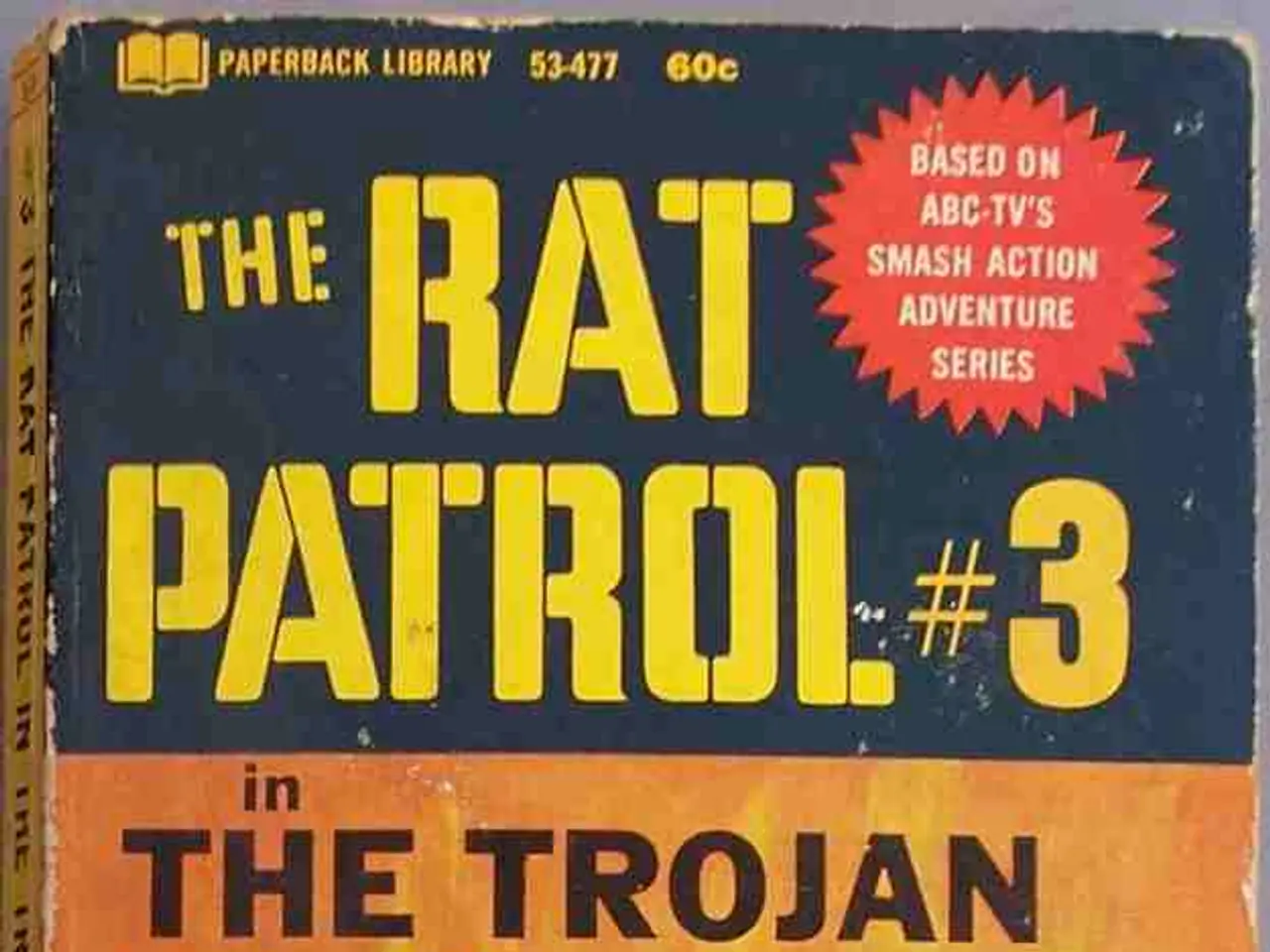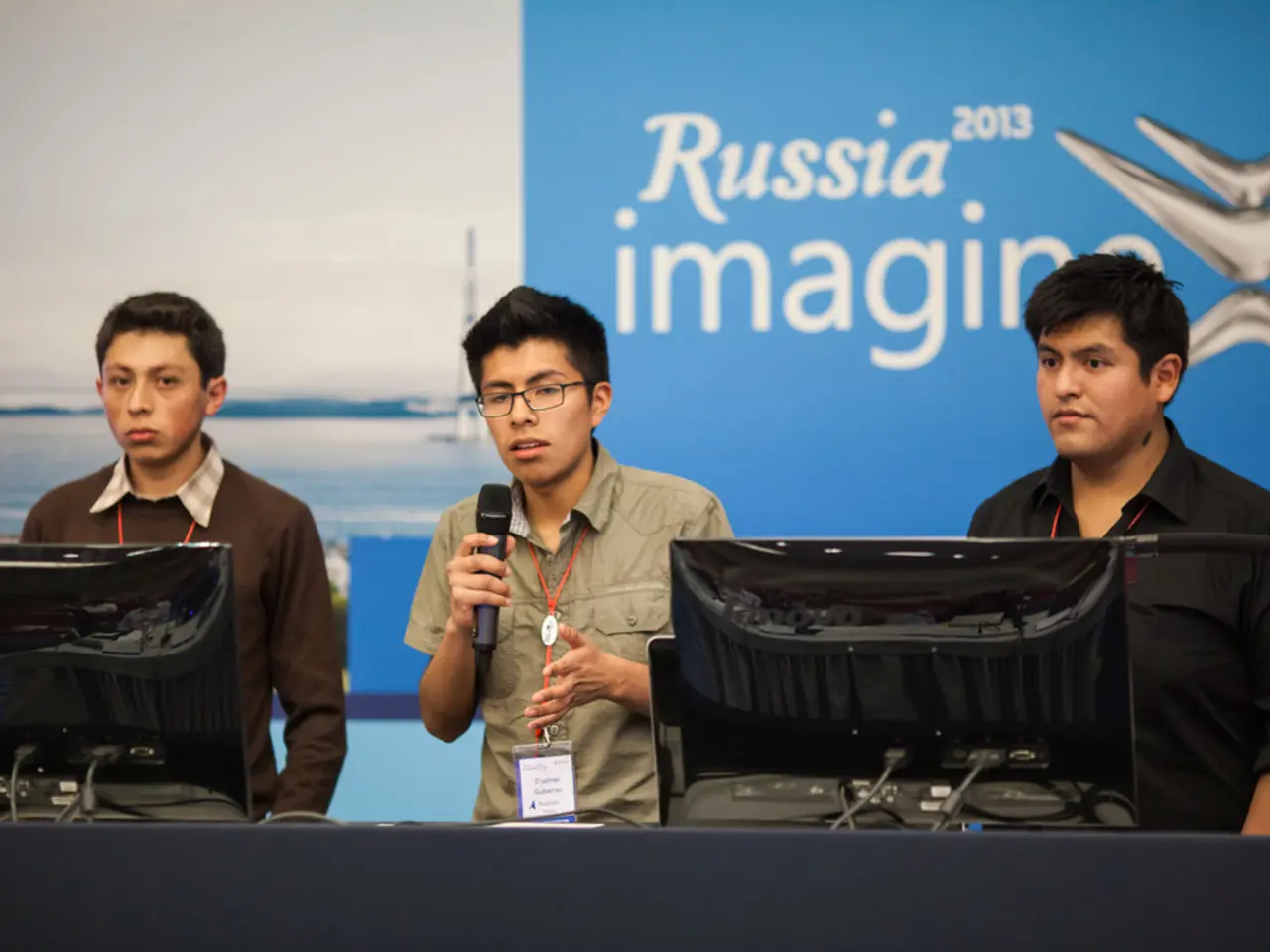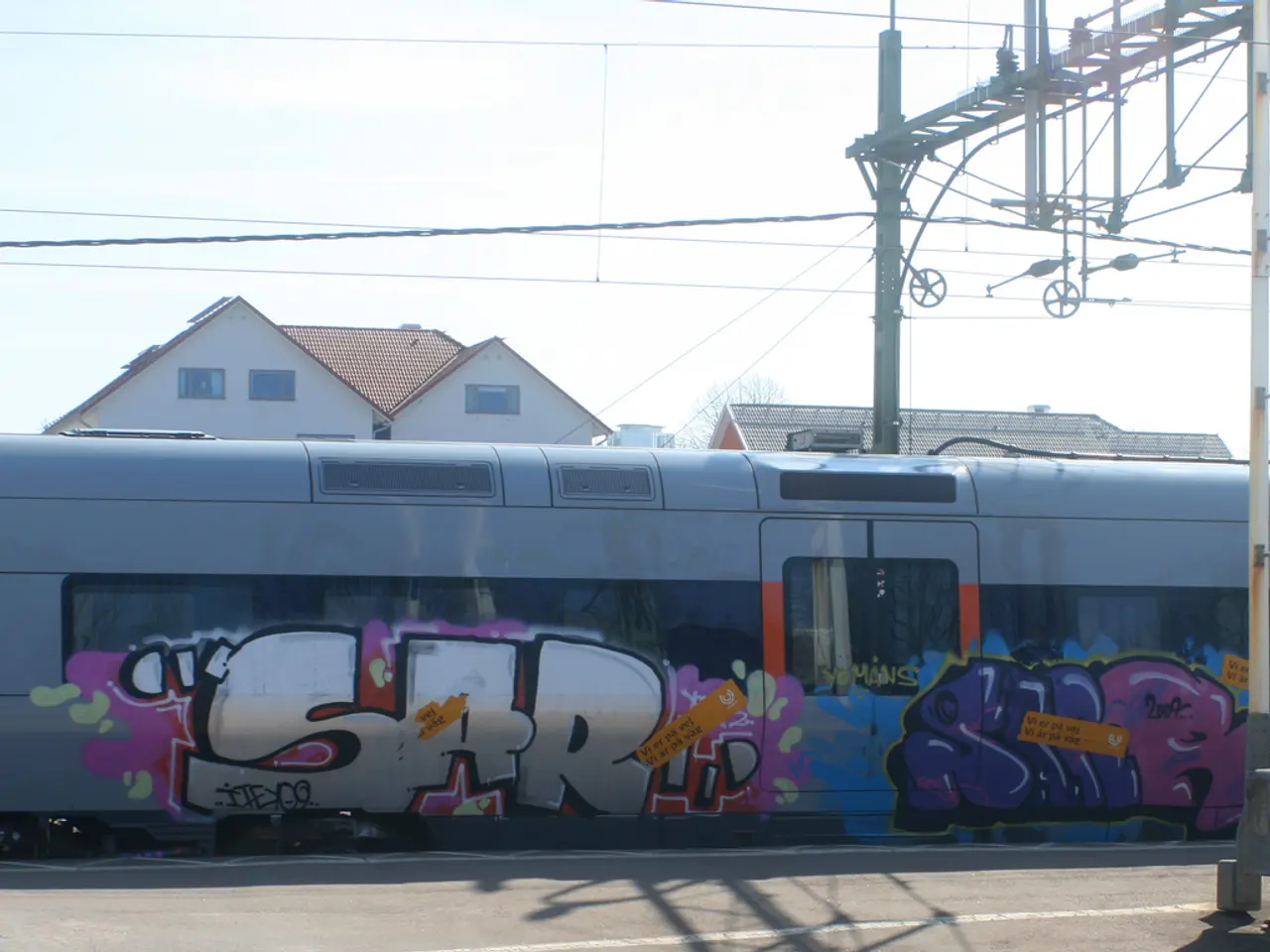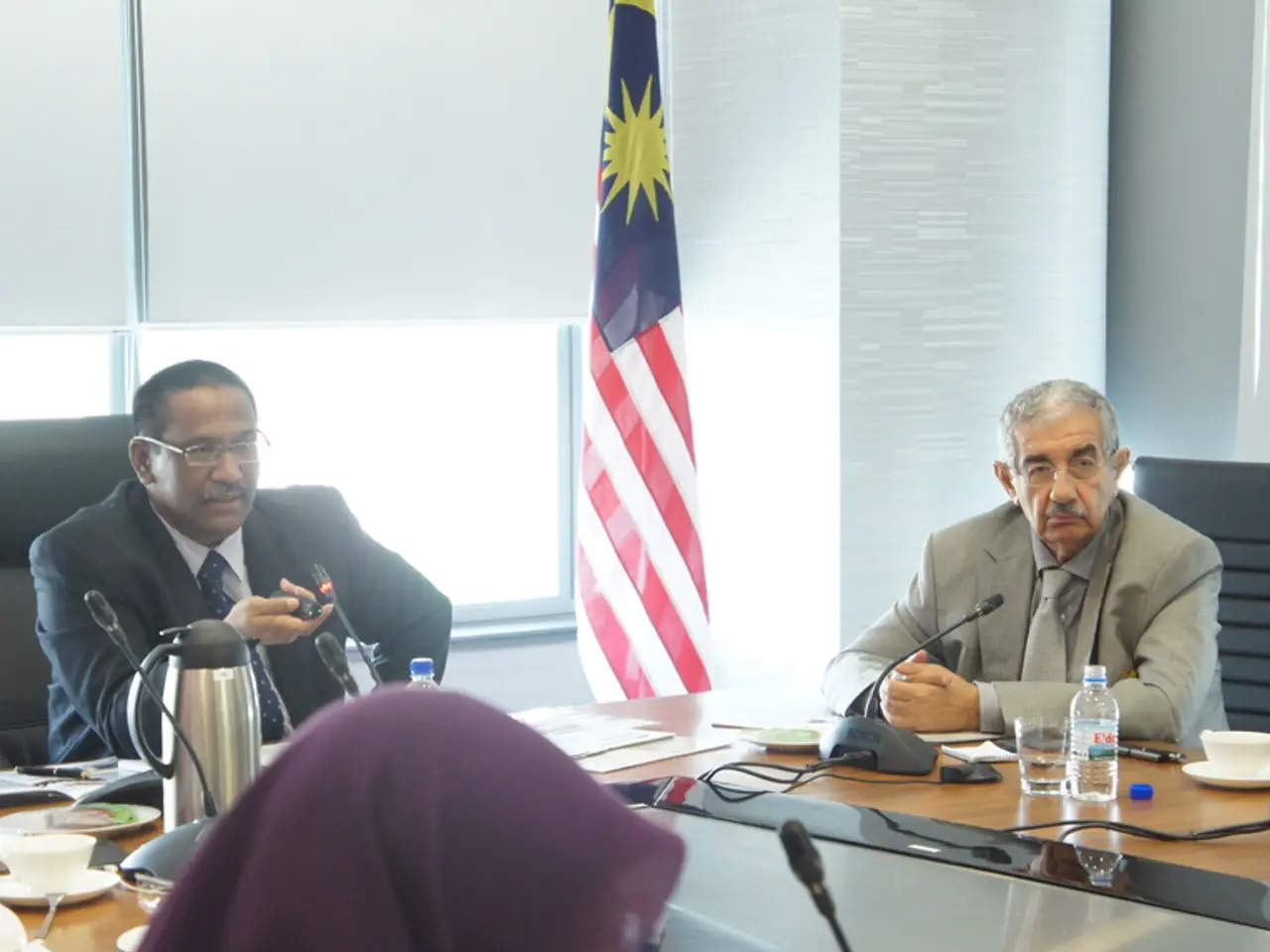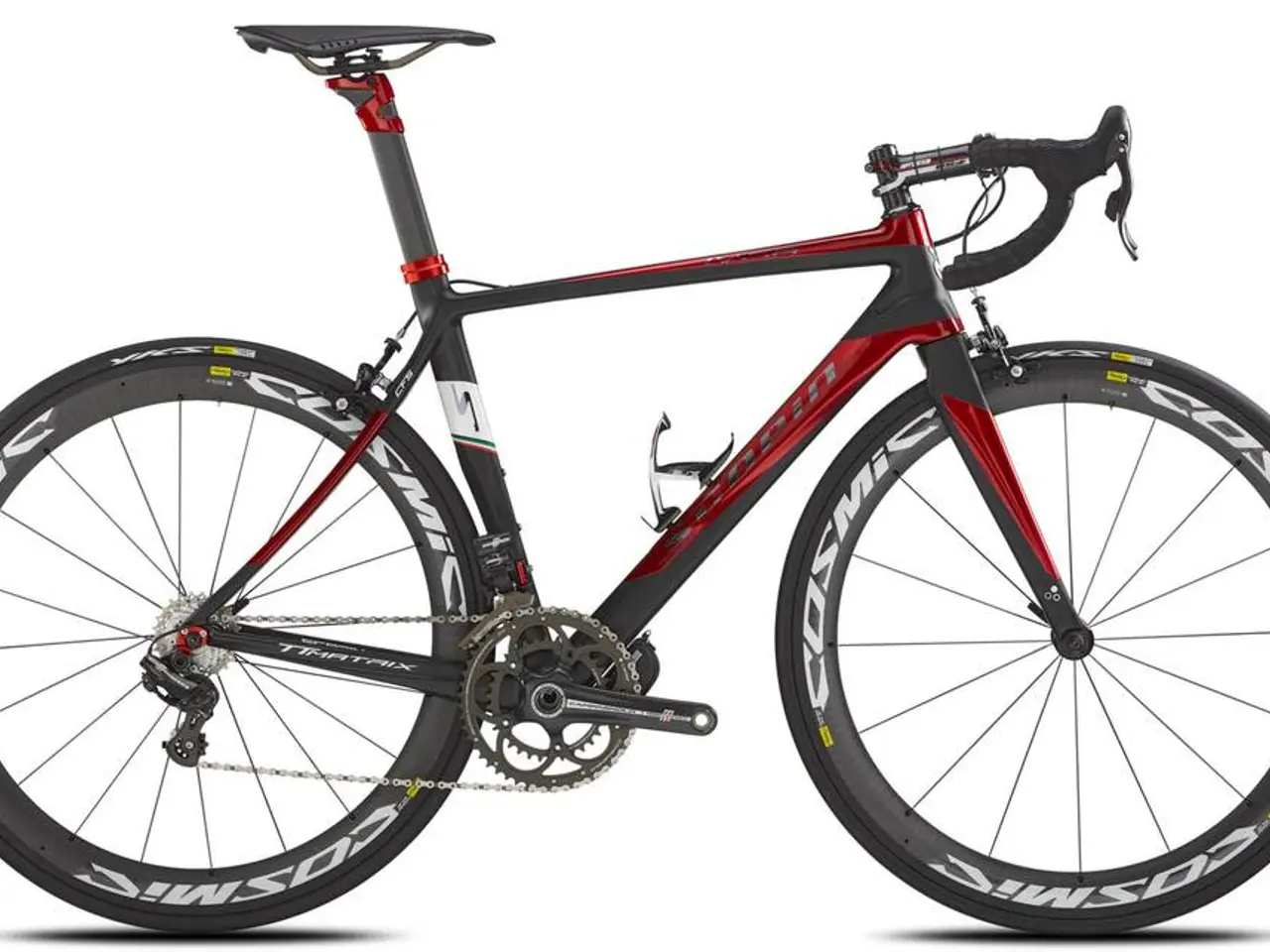NATO Adopts Trump's Proposal: 5% Defense Spending Goal Agreed Upon
"Allied Shift": A surprising shift in the NATO alliance, initially stirred by Russia's hostile actions against Ukraine and prodding from President Donald Trump, has led to an unprecedented rise in collective defense spending. The leaders met at The Hague, acknowledging that NATO, the unrivaled alliance, represents the cornerstone of Western security. The consensus? Invest a minimum of 5% of GDP into defense and security by 2035 – a figure last seen during the Cold War era, and a previous target hovering at a mere 2%.
Trump's Newfound Appreciation:
Fears of the alliance drifting post Trump's rise sparked concerns, but for now, it seems those apprehensions are discarded. The unconventional President, typically indifferent to international gatherings, reveled in the summit, labeling it a "monumental victory for the United States" and a "triumph" for Europe and global civilization.
Merz's Elation:
German Chancellor Friedrich Merz echoed the celebratory tone, dubbing the results as "historic." The agreement hinges on Trump reinforcing his dedication to Article 5 of the NATO treaty – a pledge that any strike against a fellow member constitutes an attack on all. Trump swore that this commitment would remain unwavering in the future, asserting it would hold firm because the allies were investing more substantially. In the past, Trump had repeatedly questioned the ongoing reliability of US support under the NATO treaty, even just days before the meeting.
The summit declaration boasts of NATO's steadfast commitment to its members, echoing: "We, the heads of state and government of the North Atlantic Alliance, have gathered in The Hague to reinforce our allegiance to NATO, the strongest alliance in history, and the transatlantic bond." We remain united, resolute and steadfast in protecting the one billion citizens under the NATO umbrella.
Core Investment:
In addition to the defense spending, each member is required to invest at least 3.5% of its GDP to cover core defense necessities and meet NATO capability goals. This incorporates expenses related to counter-terrorism operations and infrastructure investments, such as transportation, armored bridges, and ports.
Germany Stepping Up:
Germany sets a bold example, aiming to reach the 5% target by 2029, as per its financial forecasts, that Vice-Chancellor Lars Klingbeil presented and the cabinet endorsed. Merz emphasized that this move is taken willingly, not to cater to Trump's demands. He underscored that suspending the debt limit sent an important signal on the path towards the NATO decision. "We have taken a leading role with this decision, which others have followed.”
Spain's Rebellion:
NATO Chief Mark Rutte showered Trump with praises, commending him for an accomplishment "that no American president has achieved in decades."
The atmosphere of triumph was marred by a rebel – Spain's Prime Minister Pedro Sánchez. He asserted that Spain can uphold NATO's stipulations without raising the GDP spent on defense to 5%, as it currently spends 2.1% of its GDP this year and fulfills all requirements.
Trump then imposed a threat on Sánchez, warning of import tariffs. "We're going to negotiate a trade deal with Spain. We're going to make them pay twice as much,” he said. However, the US can only negotiate tariffs with the entire European Union. Presently involved in a trade feud with the EU, the EU Commission acts as the community's spokesperson.
Zelenskyy in the Wings:
The unity within the alliance hits its limits when it comes to the Ukraine conflict. The majority of NATO's European members onboard remain steadfastly with Ukraine, favoring increased sanctions on Russia. Trump, on the other hand, maintains an ambiguous stance, expressing doubts about escalating sanctions damaging American interests. Merz attempted to persuade Trump on the importance of sanctions during the summit's side discussions.
In contrast to previous meetings, there was no separate discussion on the Russian attack on Ukraine during the summit. Ukrainian President Volodymyr Zelenskyy, participating as a guest, played a supporting role this time. The summit declaration acknowledges Ukraine's contributions to the alliance's security with a vague commitment to "supporting Ukraine."
Ukraine's Slippery Slope:
Zelenskyy can claim a small victory as the NATO countries have agreed to include military support for his country in their defense spending calculations. Concerned that Trump's policies might alter this practice, Ukraine welcomed this reassurance.
Last year, NATO vowed 40 billion dollars in aid to Ukraine and promised to back its "irreversible path" towards NATO membership. This phrase, significant to Ukraine's aspirations, has been omitted from the latest declaration.
The surprising shift in NATO's policy and legislation, as a result of the "Allied Shift," also involves a focus on war-and-conflicts, particularly the ongoing conflict in Ukraine. This newfound focus is evident in the renewed commitment to support Ukraine, albeit in a more indirect manner, as shown by the NATO countries' agreement to include military support for Ukraine in their defense spending calculations.
The Politics surrounding this matter is complex, with some members like Germany boldly stepping up to meet the 5% defense spending target by 2029, while others, such as Spain, resist the pressure to increase defense spending. The latter's stance, led by Prime Minister Pedro Sánchez, has sparked general-news discussions about potential trade repercussions and the legality of imposing tariffs on a single European nation.
